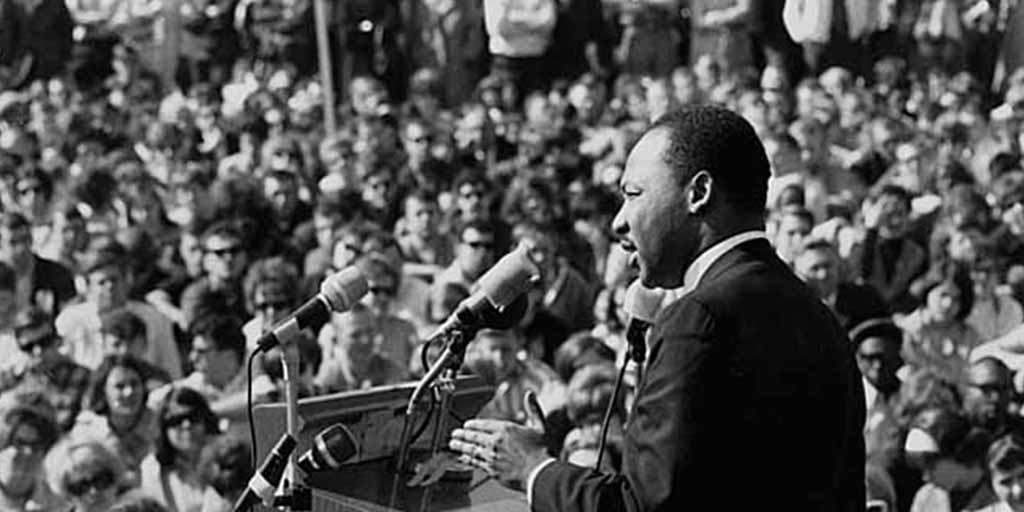To honor Dr. King’s legacy, raise the minimum wage

OpEd by Senator John I. Kane
59 years ago, Dr. Martin Luther King, Jr. gave his historic “I Have a Dream” speech at the March on Washington for Jobs and Freedom. He asked the audience of 250,000 how, a century after the end of slavery, Black Americans still “live[d] on a lonely island of poverty in the midst of a vast ocean of material prosperity.” For Dr. King, the protesters were at the capital to “cash a check”, and to finally make the promise of the American Dream a reality for everyone, regardless of the color of their skin.
Dr. King and the organizers of the March knew from the beginning that economic justice was critical to achieving racial equality. In fact, one of the earliest and most significant supporters of the effort was UAW President Walter Reuther, a prominent labor leader. Included in the nine stated goals of the March were expanded job trainings programs for unemployed individuals; a federal law against hiring discrimination; a broadening of the Fair Labor Standards Act; and a national minimum wage.
Raising the minimum wage is a racial justice issue. The original minimum wage law was actually a racist compromise: to earn the support of Southern Democrats, northern progressives agreed to exclude certain industries (such as maids, nursing home workers, and agricultural workers) due to their high concentrations of Black workers in the South. In 1966, responding to pressure from activists like Dr. King, Congress finally amended the Fair Labor Standards Act, raising the minimum wage by 28 percent (to roughly $12/hour in current dollars) and expanding minimum wage protections to an additional 9.1 million of the workers who had been excluded. Nearly one-third of Black workers were in the newly covered industries. The effect? An overall pay increase of over five percent, and a significant reduction in earnings inequality between Black and white Americans. Research by UC Berkeley economists indicates that the racial earnings gap went down by 20 percent following the increase.
At the time of the March on Washington, Black workers earned an average of 59 cents for every dollar a white worker made. Now it’s up to 78 cents but has remained essentially unchanged since the 1980s. Black workers are still twice as likely to work jobs at or below the minimum wage than white workers. Six decades after the March, Black Americans still live on an island of poverty in the richest country in the world.
Pennsylvanians haven’t seen a minimum wage increase in thirteen years. Every single neighboring state has raised their wage; 25 states passed additional increases just this year. It’s easy to see why — since 2009, the real value of the wage has decreased by almost a third. Today, an individual working a full-time minimum wage job lives barely above the poverty line. Like many of you, I’ve worked minimum wage jobs. I know how hard it is to make ends meet on that little; I know the anxiety of wondering how you’ll pay rent and put food on the table. Senate Bill 12, introduced by my colleague Senator Tina Tartaglione, will immediately raise the minimum wage to $12 an hour, with a gradual path to $15. At last year’s policy hearing on the bill (held on MLK Day), we heard from low-wage workers, business leaders, and economic experts from across the Commonwealth. The message was clear: Pennsylvania needs a higher minimum wage.
At the time of his assassination, Dr. King was fighting to secure better pay for Black sanitation employees. It was their two-month strike that brought him to Memphis in April 1968. The $2 minimum wage he called for in 1963 would be worth over $18 today. To ignore Dr. King’s unwavering conviction that economic rights are integral to racial justice is to ignore a critical part of his advocacy. It’s time we honor Dr. King’s legacy. It’s time to raise the minimum wage.
Senator John I. Kane (D-Delaware/Chester) sits on the Labor and Industry Committee.
Legal Disclaimer:
EIN Presswire provides this news content "as is" without warranty of any kind. We do not accept any responsibility or liability for the accuracy, content, images, videos, licenses, completeness, legality, or reliability of the information contained in this article. If you have any complaints or copyright issues related to this article, kindly contact the author above.
